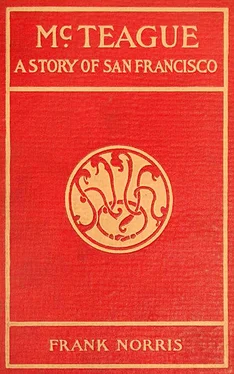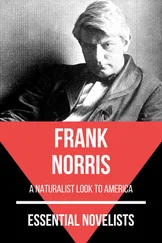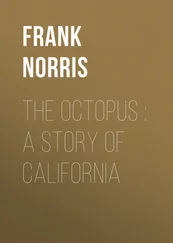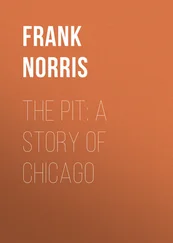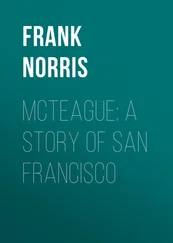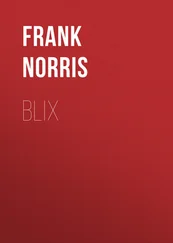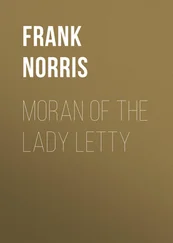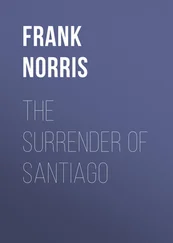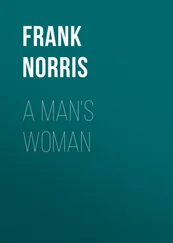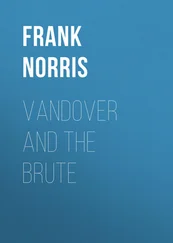Frank Norris - McTEAGUEA Story of San Franciscoby
Здесь есть возможность читать онлайн «Frank Norris - McTEAGUEA Story of San Franciscoby» весь текст электронной книги совершенно бесплатно (целиком полную версию без сокращений). В некоторых случаях можно слушать аудио, скачать через торрент в формате fb2 и присутствует краткое содержание. Год выпуска: 1899, Жанр: Классическая проза, на английском языке. Описание произведения, (предисловие) а так же отзывы посетителей доступны на портале библиотеки ЛибКат.
- Название:McTEAGUEA Story of San Franciscoby
- Автор:
- Жанр:
- Год:1899
- ISBN:нет данных
- Рейтинг книги:5 / 5. Голосов: 1
-
Избранное:Добавить в избранное
- Отзывы:
-
Ваша оценка:
- 100
- 1
- 2
- 3
- 4
- 5
McTEAGUEA Story of San Franciscoby: краткое содержание, описание и аннотация
Предлагаем к чтению аннотацию, описание, краткое содержание или предисловие (зависит от того, что написал сам автор книги «McTEAGUEA Story of San Franciscoby»). Если вы не нашли необходимую информацию о книге — напишите в комментариях, мы постараемся отыскать её.
McTEAGUEA Story of San Franciscoby — читать онлайн бесплатно полную книгу (весь текст) целиком
Ниже представлен текст книги, разбитый по страницам. Система сохранения места последней прочитанной страницы, позволяет с удобством читать онлайн бесплатно книгу «McTEAGUEA Story of San Franciscoby», без необходимости каждый раз заново искать на чём Вы остановились. Поставьте закладку, и сможете в любой момент перейти на страницу, на которой закончили чтение.
Интервал:
Закладка:
The performance went on. Now it was the "musical marvels," two men extravagantly made up as negro minstrels, with immense shoes and plaid vests. They seemed to be able to wrestle a tune out of almost anything — glass bottles, cigar-box fiddles, strings of sleigh-bells, even graduated brass tubes, which they rubbed with resined fingers. McTeague was stupefied with admiration.
"That's what you call musicians," he announced gravely. "'Home, Sweet Home,' played upon a trombone. Think of that! Art could go no farther."
The acrobats left him breathless. They were dazzling young men with beautifully parted hair, continually making graceful gestures to the audience. In one of them the dentist fancied he saw a strong resemblance to the boy who had tormented the intoxicated lodger and who had turned such marvellous somersaults. Trina could not bear to watch their antics. She turned away her head with a little shudder. "It always makes me sick," she explained.
The beautiful young lady, "The Society Contralto," in evening dress, who sang the sentimental songs, and carried the sheets of music at which she never looked, pleased McTeague less. Trina, however, was captivated. She grew pensive over
"You do not love me — no;
Bid me good-by and go;"
and split her new gloves in her enthusiasm when it was finished.
"Don't you love sad music, Mac?" she murmured.
Then came the two comedians. They talked with fearful rapidity; their wit and repartee seemed inexhaustible.
"As I was going down the street yesterday—"
"Ah! as YOU were going down the street — all right."
"I saw a girl at a window—"
"YOU saw a girl at a window."
"And this girl she was a corker—"
"Ah! as YOU were going down the street yesterday YOU saw a girl at a window, and this girl she was a corker. All right, go on."
The other comedian went on. The joke was suddenly evolved. A certain phrase led to a song, which was sung with lightning rapidity, each performer making precisely the same gestures at precisely the same instant. They were irresistible. McTeague, though he caught but a third of the jokes, could have listened all night.
After the comedians had gone out, the iron advertisement curtain was let down.
"What comes now?" said McTeague, bewildered.
"It's the intermission of fifteen minutes now."
The musicians disappeared through the rabbit hutch, and the audience stirred and stretched itself. Most of the young men left their seats.
During this intermission McTeague and his party had "refreshments." Mrs. Sieppe and Trina had Queen Charlottes, McTeague drank a glass of beer, Owgooste ate the orange and one of the bananas. He begged for a glass of lemonade, which was finally given him.
"Joost to geep um quiet," observed Mrs. Sieppe.
But almost immediately after drinking his lemonade Owgooste was seized with a sudden restlessness. He twisted and wriggled in his seat, swinging his legs violently, looking about him with eyes full of a vague distress. At length, just as the musicians were returning, he stood up and whispered energetically in his mother's ear. Mrs. Sieppe was exasperated at once.
"No, no," she cried, reseating him brusquely.
The performance was resumed. A lightning artist appeared, drawing caricatures and portraits with incredible swiftness. He even went so far as to ask for subjects from the audience, and the names of prominent men were shouted to him from the gallery. He drew portraits of the President, of Grant, of Washington, of Napoleon Bonaparte, of Bismarck, of Garibaldi, of P. T. Barnum.
And so the evening passed. The hall grew very hot, and the smoke of innumerable cigars made the eyes smart. A thick blue mist hung low over the heads of the audience. The air was full of varied smells — the smell of stale cigars, of flat beer, of orange peel, of gas, of sachet powders, and of cheap perfumery.
One "artist" after another came upon the stage. McTeague's attention never wandered for a minute. Trina and her mother enjoyed themselves hugely. At every moment they made comments to one another, their eyes never leaving the stage.
"Ain't dot fool joost too funny?"
"That's a pretty song. Don't you like that kind of a song?"
"Wonderful! It's wonderful! Yes, yes, wonderful! That's the word."
Owgooste, however, lost interest. He stood up in his place, his back to the stage, chewing a piece of orange peel and watching a little girl in her father's lap across the aisle, his eyes fixed in a glassy, ox-like stare. But he was uneasy. He danced from one foot to the other, and at intervals appealed in hoarse whispers to his mother, who disdained an answer.
"Ma, say, ma-ah," he whined, abstractedly chewing his orange peel, staring at the little girl.
"Ma-ah, say, ma." At times his monotonous plaint reached his mother's consciousness. She suddenly realized what this was that was annoying her.
"Owgooste, will you sit down?" She caught him up all at once, and jammed him down into his place. "Be quiet, den; loog; listun at der yunge girls."
Three young women and a young man who played a zither occupied the stage. They were dressed in Tyrolese costume; they were yodlers, and sang in German about "mountain tops" and "bold hunters" and the like. The yodling chorus was a marvel of flute-like modulations. The girls were really pretty, and were not made up in the least. Their "turn" had a great success. Mrs. Sieppe was entranced. Instantly she remembered her girlhood and her native Swiss village.
"Ach, dot is heavunly; joost like der old country. Mein gran'mutter used to be one of der mos' famous yodlers. When I was leedle, I haf seen dem joost like dat."
"Ma-ah," began Owgooste fretfully, as soon as the yodlers had departed. He could not keep still an instant; he twisted from side to side, swinging his legs with incredible swiftness.
"Ma-ah, I want to go ho-ome."
"Pehave!" exclaimed his mother, shaking him by the arm; "loog, der leedle girl is watchun you. Dis is der last dime I take you to der blay, you see."
"I don't ca-are; I'm sleepy." At length, to their great relief, he went to sleep, his head against his mother's arm.
The kinetoscope fairly took their breaths away.
"What will they do next?" observed Trina, in amazement. "Ain't that wonderful, Mac?"
McTeague was awe-struck.
"Look at that horse move his head," he cried excitedly, quite carried away. "Look at that cable car coming — and the man going across the street. See, here comes a truck. Well, I never in all my life! What would Marcus say to this?"
"It's all a drick!" exclaimed Mrs. Sieppe, with sudden conviction. "I ain't no fool; dot's nothun but a drick."
"Well, of course, mamma," exclaimed Trina, "it's—"
But Mrs. Sieppe put her head in the air.
"I'm too old to be fooled," she persisted. "It's a drick." Nothing more could be got out of her than this.
The party stayed to the very end of the show, though the kinetoscope was the last number but one on the programme, and fully half the audience left immediately afterward. However, while the unfortunate Irish comedian went through his "act" to the backs of the departing people, Mrs. Sieppe woke Owgooste, very cross and sleepy, and began getting her "things together." As soon as he was awake Owgooste began fidgeting again.
"Save der brogramme, Trina," whispered Mrs. Sieppe. "Take ut home to popper. Where is der hat of Owgooste? Haf you got mein handkerchief, Trina?"
But at this moment a dreadful accident happened to Owgooste; his distress reached its climax; his fortitude collapsed. What a misery! It was a veritable catastrophe, deplorable, lamentable, a thing beyond words! For a moment he gazed wildly about him, helpless and petrified with astonishment and terror. Then his grief found utterance, and the closing strains of the orchestra were mingled with a prolonged wail of infinite sadness.
Читать дальшеИнтервал:
Закладка:
Похожие книги на «McTEAGUEA Story of San Franciscoby»
Представляем Вашему вниманию похожие книги на «McTEAGUEA Story of San Franciscoby» списком для выбора. Мы отобрали схожую по названию и смыслу литературу в надежде предоставить читателям больше вариантов отыскать новые, интересные, ещё непрочитанные произведения.
Обсуждение, отзывы о книге «McTEAGUEA Story of San Franciscoby» и просто собственные мнения читателей. Оставьте ваши комментарии, напишите, что Вы думаете о произведении, его смысле или главных героях. Укажите что конкретно понравилось, а что нет, и почему Вы так считаете.
